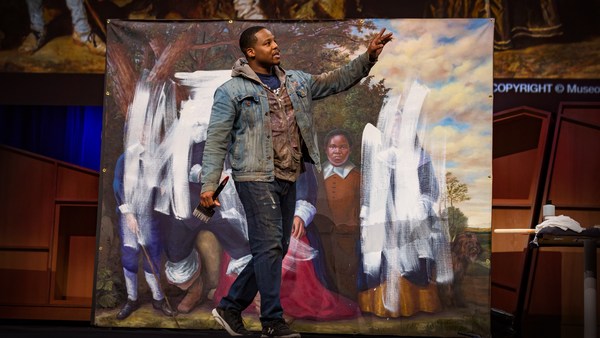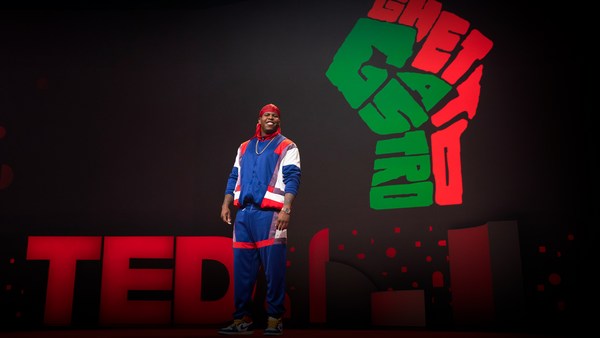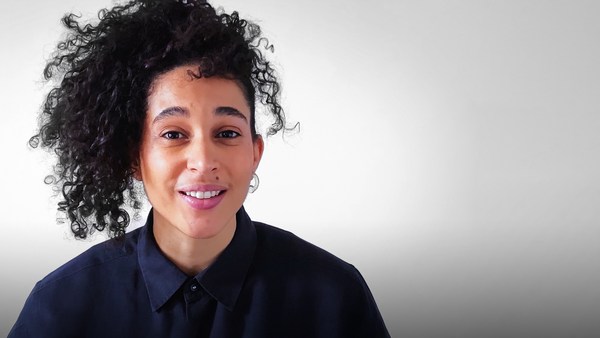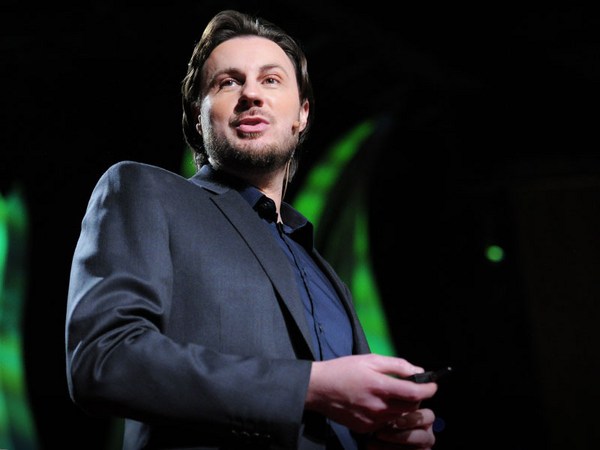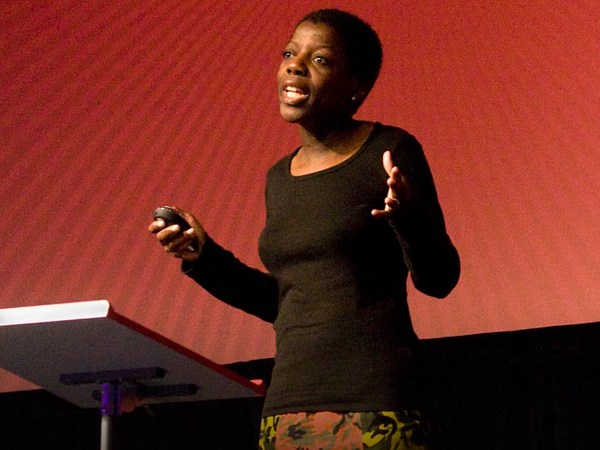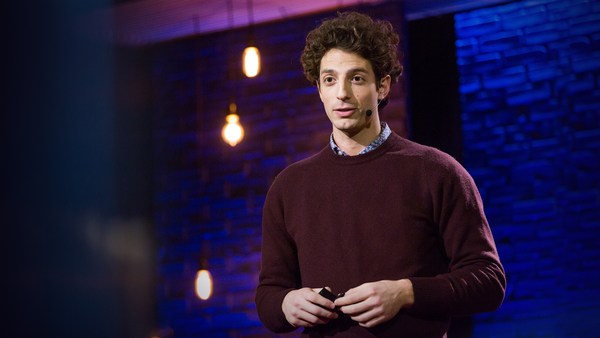Swizz Beatz: I got it. So are you guys going to mute when I talk so nothing interrupts it?
Voice: Uhh, yes.
SB: Because once I'm in the flow, I like to stay in the flow.
Having some type of support is very necessary when you are creative. You know, there has to be something that's fueling that creativity, that's fueling that fire that you have inside.
My love for music and creativity starts way back, way back. Back in the South Bronx where I grew up, building 700, apartment 2E. I would go outside and all I would hear is music. You go around to the back park, the DJs are playing, there's a basketball game going on, but then you would look at the handball court, and that handball court would have an amazing graffiti mural, I don't know if it's from Keith Haring or Fab 5 Freddy. I was instantly attracted to the creative.
Music has been my therapy since day one. Anytime I get stressed out, I go to the arts, I go to creativity, I go to music. Music makes people feel hugged, people feel loved. And then I remember one of my uncles saying, "You should get into producing," I'm like, "What's producing?" You know, it started as a family-owned business, because Ruff Ryders was created by my family. It gave you DMX, it gave you Eve, it gave you Drag-On, it gave you The LOX. I've gotten every accolade in music that one can get. It just came to the point where it's like, "You know what? I'm no longer going to have fun with this unless I'm able to give back."
You know, The Dean Collection started for me to create a museum for my family and our name. Something that my kids would have to be responsible to pass through generations. I said, "Wait a minute, The Dean Collection is not just for The Dean Collection, The Dean Collection is for everyone." There are some galleries now and places you walk in, if you don't have 50,000, there's nothing to talk about. And I felt that a lot of people were using that as an excuse to exit art. They feel that art is only for rich people. Whoa. We've got to stop this, we've got to fix this. And that's what made me and my wife say, you know, we have to create an entry point to the younger generation that didn't understand the art world, didn't have their seat at the table, and then we started "No Commissions."
It's a big event, you got 30-something-thousand RSVPs a night. The drinks are free, the food is free, the concert's free. The education is free, and I feel that education should be free. We went to Shanghai, we went to London, we went to Berlin, we did it right in my backyard in the South Bronx. You can come in to "No Commissions" and get something for a couple of bucks, or a couple hundred thousand. There's a tier for every person that has love for art. And what we're doing is something totally different from a gallery. The artists keep 100 percent of the sales.
But what about after "No Commissions," how can you sustain, how can you move forward without having to be trapped to sell your soul? I was a part of the sale with my brother Sean "Diddy" Combs, the 21-million-dollar purchase, which made Kerry James Marshall the highest-selling African American living artist to today. I'm like, "Man, you just broke the record," and the artist was like, "Yeah, I don't know whether to be happy or to be sad." He first sold that work, it was under 100,000. So imagine a work that you made for under 100,000 is now being sold for 21 million, and you had to sit home and watch this. And you couldn't even participate five percent.
When you look at it, I'm a producer, I'm a songwriter, every time it's played on the radio, I get paid. Every time it's played in a movie, I get paid. Every time it plays, period, I get paid. Visual artists, they only get paid once. How, when paintings are sold and traded multiple times? And that's that artist's lifetime work, that other people are making 10, 15, sometimes 100 times more than the artist that created it. So I created something called the Dean's Choice, where if you're a seller, or a collector, and you bring in your work into, let's say, Sotheby's, there's a paper that's there that says, "Hey, guys, you know, this artist is still living. You've made 300 percent on your investment by working with this artist. You can choose to give the artist whatever you want of the sale." I think that even if five people did it, it'll start to change everything in the arts. And this is happening in Europe already. It happens in the music industry, it's called publishing. And artists are able to survive, musicians are able to survive, years after years, off of the residual income of their publishing.
So how can we take something that brings creatives together, and celebrate each other? Myself and Timbaland have been working on this idea called Verzuz for about three years now. Then this trying time came, and everybody started going to social media to express themselves. So what we did was I played my top songs, he played his top songs, and we went on Instagram Live.
(Video) (Laughter)
Timbaland: You having fun? This is so good for the culture.
SB: A lot of people like to say "battle," we pulled back off of that word "battle," because we're battling enough in the world today. We call it educational celebration. I think we're on our ninth or tenth one. Me and Timbaland started out with 20,000 people. As of yesterday, 750,000 people in one room.
So, we have this thing called the "Verzuz Effect." And the "Verzuz Effect" is what happens to the artist after they contribute to Verzuz. We can go to the Babyface and Teddy Riley. They both went up millions of views. Both of their songs reentered the charts. And then we look at the first ladies Verzuz, and both Erykah Badu and Jill Scott have seven positions in the top 20 charts. This is the Verzuz Effect. You know, billions and billions and billions of impressions. This is something I've never seen before. And I felt that these artists are getting their flowers today, which is a great thing, while they can smell them.
This was personal for me, because many a times I've been counted out, I've been hot and cold 100 times. You still have to understand the business as an artist, to elevate to your level that you deserve to be. Because most creatives, we're very emotional, we're very "let somebody else handle that, I want to stick to this." But not only creativity is key, education is key, which is the reason why I went back to school to sharpen my pencil in my mid-30s. We have to know our business. But it's going to take us digging in a little deeper and pulling out the knowledge that we need to prepare ourselves for this world that's waiting to take advantage of the creatives. Then we can make better choices, then we can end that conversation of artists dying poor. If we're not protecting the arts, we're not protecting our future, we're not protecting this world. Creativity heals us.
What's these shades closing for? Time out.
(Scoffs)
Voice: I kind of like that. That was cool.
SB: (Laughs)
